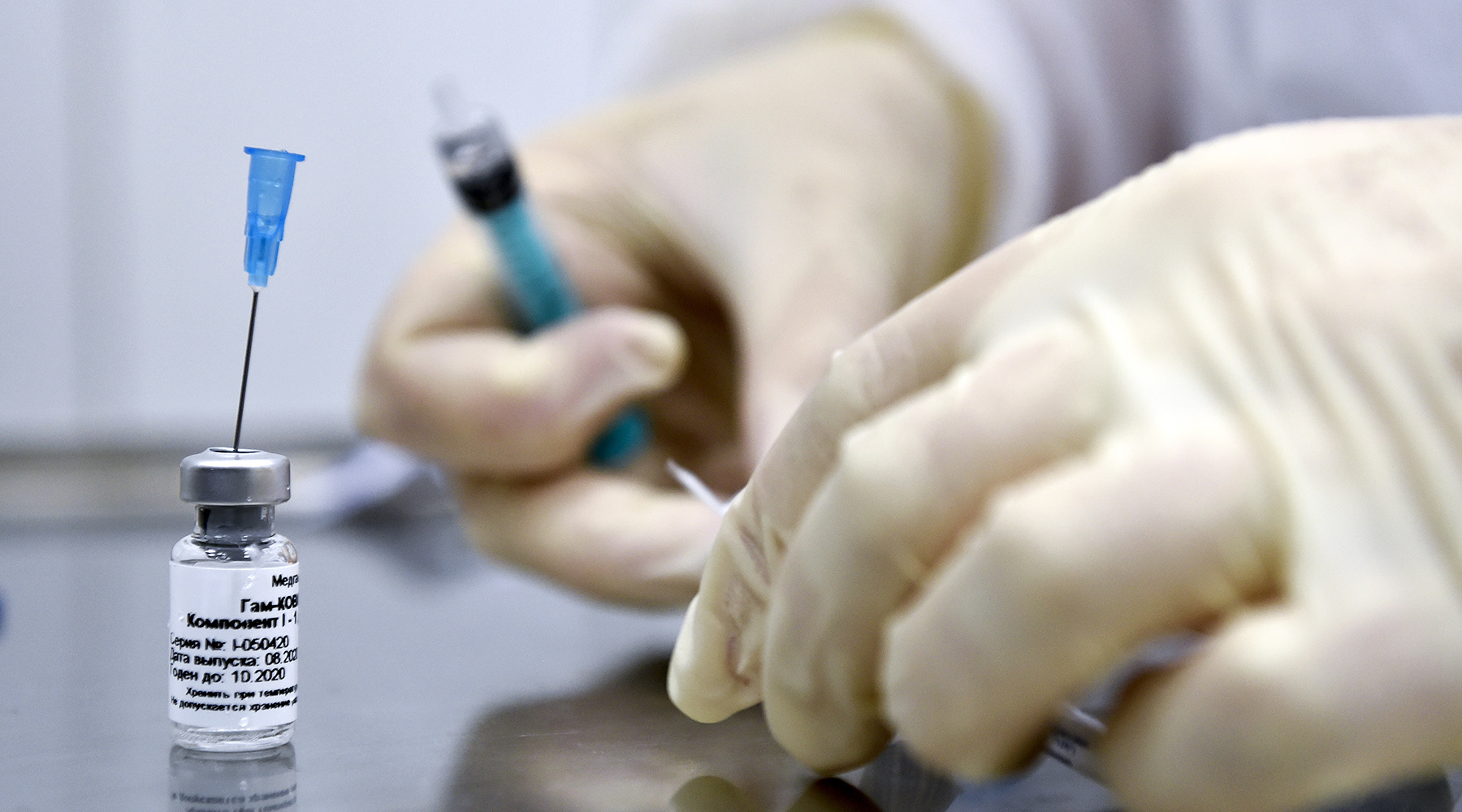Professor Marcello Ferrada de Noli, who lives in the Italian province of Bergamo, announced his intention to use his own money to buy 740 units of the Russian Sputnik V coronavirus vaccine for elderly residents of the commune of San Giovanni Bianco.
This is stated in his letter to the Russian embassy in Italy.
RT publishes a translation of his appeal.
“I am an emeritus professor of epidemiology from Sweden.
Since I retired, I have been living in Italy in San Giovanni Bianco, Bergamo.
I am the founder of the non-governmental organization Swedish Doctors for Human Rights (SWEDHR), as well as the editor of The Indicter magazine, ”said the professor.
Ferrada de Noli is the author of the article "Western encroachments on the Russian vaccine against Covid-19 - a corporate cold war against humanity?", Published on September 17, 2020 on the English-language website RT, and the material was also published in Italy.
“My appeal / request is as follows: I want to purchase 740 units of the Sputnik V vaccine with my own funds to donate to the elderly population of San Giovanni Bianco.
For reference.
Population of San Giovanni Bianco: N = 4,700 [persons], of whom, prior to the outbreak of the pandemic, n = 805 were aged 70 or older.
In this group of elderly people, n = 65 died during the pandemic.
Thus, the number of people aged 70 years or older at the moment: n = 740. From an epidemiological point of view, during the second phase of the COVID-19 pandemic, the designated part of the elderly population is at greatest risk, ”the scientist added.
According to him, the purchase of the vaccine is "a completely private initiative."
“However, I expect that the San Giovanni Bianco authorities will be happy about this opportunity, provided that its clinical implementation is subject to an assessment by the relevant local health authority.
If such a purchase is possible, then I would like to know when it will be possible to make it and how much it will cost in euros.
I look forward to a prompt response to this appeal.
Respectfully yours, Professor Marcello Ferrada de Noli, ”the letter says.
COVID-19 vaccines
The world's first vaccine against coronavirus infection COVID-19, dubbed Sputnik V, was registered in Russia on August 11.
It was developed by the National Research Center for Epidemiology and Microbiology named after Honorary Academician N.F.
Gamalei.
As noted in the Russian Direct Investment Fund, on September 4, 2020, a scientific article was published in one of the world's leading medical journals The Lancet with the results of phases 1-2 of clinical trials of the vaccine.
Sputnik V demonstrated the absence of serious adverse events and the formation of a stable immune response in research participants.
AFP
© NATALIA KOLESNIKOVA
On November 24, the RDIF reported that the effectiveness of the Sputnik V vaccine on the 42nd day after the first injection exceeds 95%, while on the 28th day the effectiveness of the drug was 91.4%.
“The cost of the Russian Sputnik V vaccine for international markets from February 2021 will be less than $ 10 per dose, which is less than $ 20 for two doses required to vaccinate one person.
Thus, Sputnik V will be two or more times cheaper than foreign RNA vaccines with similar efficacy, ”the RDIF press release said.
According to the Russian Direct Investment Fund, more than 50 countries have submitted applications for the purchase of over 1.2 billion doses of Sputnik V vaccine.
At the same time, the developers of the Russian Sputnik V vaccine proposed the British company AstraZeneca to combine it with their drug to increase its effectiveness.
It is noted that this may be important when re-vaccination is carried out.
Current full dose AstraZeneca regimen resulted in 62% efficacy.
If they go for a new clinical trial, we suggest trying a regimen of combining the AZ shot with the #SputnikV human adenoviral vector shot to boost efficacy.
Combining vaccines may prove important for revaccinations.
- Sputnik V (@sputnikvaccine) November 26, 2020
Previously, AstraZeneca published the results of a study of its vaccine, according to which, on average, 70% of the subjects did not get sick after being vaccinated with a drug developed in conjunction with scientists from Oxford.
At the same time, the company reported that one variant of the dosage of the vaccine showed an efficiency of 90%, while the indicators of the other were 62%.
However, later, the media, citing the scientific adviser to the US presidential administration, Monsef Sloughi, reported that the dosage of the vaccine with an efficacy of 90% was tested on volunteers no older than 55 years.
In addition, the first injection was given with half the prescribed dose.
At the same time, the executive vice president of research and development of biopharmaceuticals at AstraZeneca, Mene Pangalos called the mistake "not relevant."
According to him, even excluding data for a group of patients under 55 years old, their vaccine still has an effectiveness of more than 60%, which corresponds to the threshold values at which the drug can be approved.
The Wall Street Journal notes that the US vaccine efficacy bar is set at 50%.

